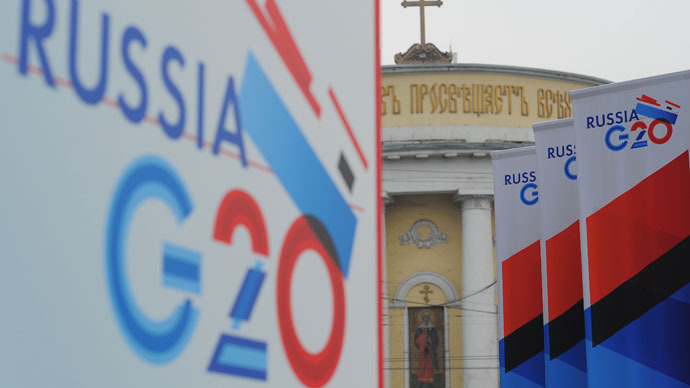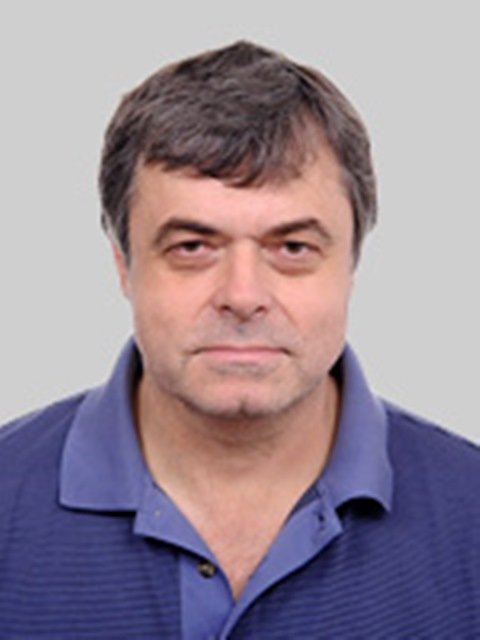Uphill battle: Russia at the helm of G20

Russia has assumed the presidency of the Group of Twenty (G20) for the first time in a move underscoring the most ...
Russia has assumed the presidency of the Group of Twenty (G20)
for the first time in a move underscoring the most drastic
transformation of the post-cold war world. However, hailed by some
as Moscow’s major diplomatic gain of the year, Russia’s G20 lead in
a club of the world’s largest economies looks like an uphill battle
to prove that its chairmanship would serve as an instrument for
global crisis management.
To start with, the selection of the Group of Twenty summit venue in
itself is quite symbolic: the next G20 summit will be held Sept.
5-6, 2013, in the Russian city of St. Petersburg. It is a former
citadel of the Bolshevik revolution and a hometown of President
Putin, which has won the reputation of Russia’s unofficial
“Northern capital” and a venue for many key political and
business forums.
The G20 is a forum of 19 countries and the European Union, which was established on the wake of the 2008 global economic meltdown to work out a roadmap for crisis management and to establish the comprehensive mechanism for joint efforts by the Western and major Asia-Pacific powers as well as South America’s and Africa’s rising economic giants. G20 members’ record is impressive as it accounts for 90 percent of the global GDP, 80 percent of world trade and two-thirds of the world’s population. “The G-20 is not the G-8. It possesses greater legitimacy because of its broader representation of different countries,” explains Fyodor Lukyanov, the Head of Russia’s Council on Foreign and Defense Policy and the editor-in-chief of the journal Russia in Global Affairs.
Obviously, every country has its own list of priorities when it assumes the presidency of the G-20, naming the issues on which it will focus during its chairmanship. Russia’s priorities during its G20 presidency were spelled out in President Putin’s welcoming address. “We believe that the Russian presidency's main task will be to focus the G20's efforts on developing measures to stimulate economic growth and create jobs”, the statement says. The task will require investment incentives, trust and transparency in markets and effective regulation.
The key issue Russia’s G20 presidency needs to address is the restoration of investor confidence, adds Russia’s Finance Minister Anton Siluanov. In a situation, when economic growth in the locomotives of the world economy, including China, is still slowing down and the southern countries of the EU are in recession, global investor confidence is crucial for meeting the main global challenge of jump-starting economic growth, says Mr.Siluanov.
While Russia’s official agenda is spelled out in President
Putin’s address and terse statements by Russian officials, the
devil is in detail – how to achieve these goals. There is no
detailed road-map unveiled so far. The reason is we are only at the
very beginning of the G20 chairmanship process and a lot will
depend on the grueling negotiations within the G20 in the coming
months and the Sept.2013 summit itself.
And here we come to something which is not written into Putin’s
address, but which is in the air and is actively discussed by
experts. While no one questions the need for stimulating growth and
reducing debt, inside the G20 there are two major groups of
interests, or two centers of economic power, which agree to
disagree on many key things. One group is the Western nations, the
other group – BRICS members.
The basic understanding of many topical issues of global economy
by Russia and her BRICS partners is quite different from the
understanding, voiced at the West. There are different views on how
to stimulate growth, reduce debt, etc, those views often clash. We
have not yet agreed even on the definitions of key terms, like
“investment incentives”, “trust and transparency in
markets”, “effective regulation”.
So, it is to be seen whose ideas and vision would finally prevail and dominate during Russia’s year term as G20 President. The question is up in the air. The problem is explained by Gennady Chufrin, a professor with the Institute of International Economy and International Relations (IMEMO): “At present, we see an obvious pro-Western tilt in the activities of the IMF and the World Bank. That tilt needs to be corrected in favor of the developing countries and BRICS, and Russia as president of the G20 has such a chance”.
Obviously, Russia would try to articulate her vision of the
global economy with the support of BRICS partners. And this is the
reason why BRICS summit in St-Petersburg is to be held on the
sidelines of G20 forum. Russia needs BRICS to fully throw its
weight behind her, so that her G20 presidency would be a success.
On the other hand, BRICS partners would also try to capitalize on
Russia’s G20 chairmanship to articulate their own
agendas.
So, all in all, the main theme of the Moscow G20 chairmanship
looks like expanding Russian and BRICS agenda of crisis prevention,
promoting growth and the restructuring of the global
economy.
Russia’s G20 Presidency would end the decades-long saga of Moscow’s humiliation by constant threats, voiced by US senators, to expel it from the G8 for not fitting the standards of the elite club of world economies. Shortly after this September’s APEC summit in Vladivostok, Moscow is scoring another victory on a global scale. Some say that Russia’s G20 presidency comes as the Kremlin’s sweet revenge over the West, indicating there is no more way to lecture it, or treat it as a junior partner, or an underdog.
However, Moscow is yet to prove that its G20 chairmanship is not technical. The main task is not to simply offer an arena for meetings, but to genuinely lead the world process. And this is an art yet to be learnt.
The statements, views and opinions expressed in this column are solely those of the author and do not necessarily represent those of RT.
The statements, views and opinions expressed in this column are solely those of the author and do not necessarily represent those of RT.













